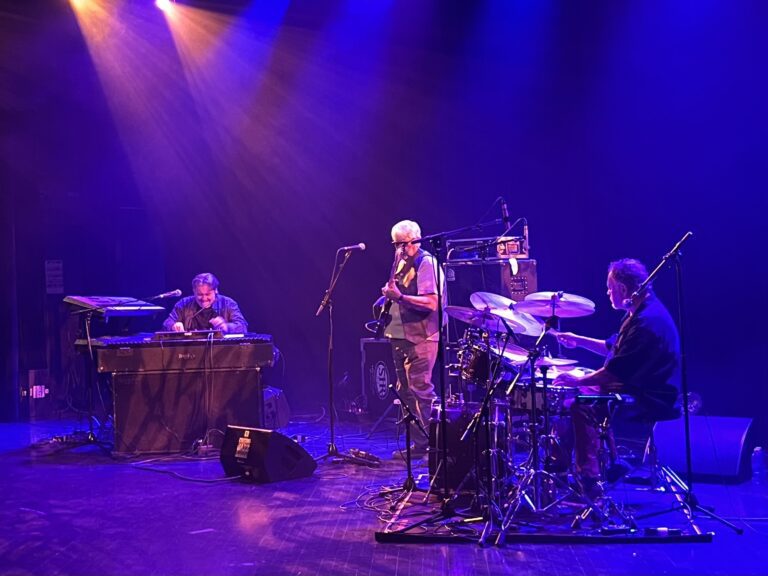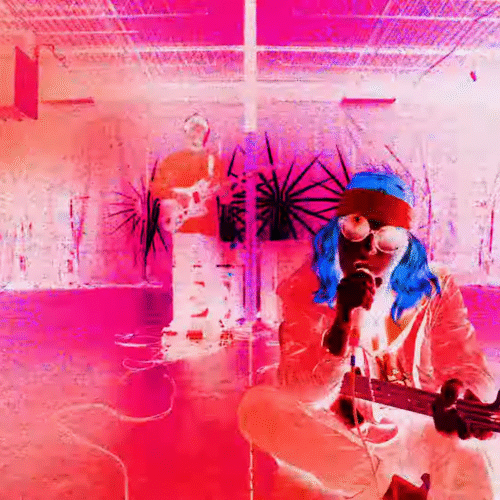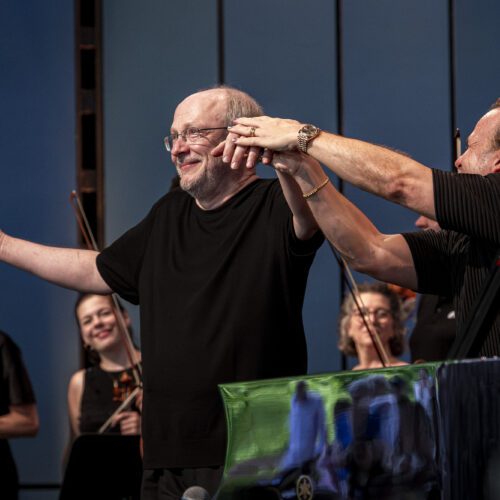The Azimuth band is a legend in Brazil. It started out in 1973, in Rio de Janeiro, juggling Brazilian popular music, rock and jazz. Over the years, the trio has become increasingly jazz-fusion, without ever abandoning its Brazilian roots.
Fifty-two years after his birth, Azimuth presented himself at the Gesu in spectacular form, and had the vast majority of the audience in his pocket from the very first piece, taken from his recent album Marca Passo, released this month.
Azimuth is a kind of Brazilian Weather Report, in a different form: a keyboardist, a bassist and a drummer. Of the original line-up, only bassist Alex Malheiros remains, still going strong despite his 78 years. Kiko Continento has officiated on keyboards since 2015, and Renato Massa Calmon handles drums and percussion.
The three musicians are very close-knit and offer music that is both complex and festive, sometimes a little dated because of the keyboards: a Korg synthesizer, a Rhodes electric piano and an organ whose brand I haven’t seen. Kiko Contentino, the 55-year-old youngster in the band, plays his instruments like a teenager, while being very versatile.
Alex Malheiros handles his bass with intelligence, occasionally using slap, but not excessively. In this kind of band, the bass is more than an accompaniment; it’s an essential instrument, and the moustachioed Brazilian also knows how to solo.
Rebato Calmon brought the crowd to its feet on several occasions with his drum solos. Personally, I find him best when he accompanies with great virtuosity, mixing Brazilian percussion with drums and cymbals.
This is jazz fusion of the highest order. But the most delightful and original moments came when the band displayed their Brazilian-ness. Wordless vocal harmonies, whistles, a percussion trio – the little things that make a difference. Having lived in Rio de Janeiro for two years and listened to a lot of Brazilian music, I particularly appreciate this.
I also often say that with this kind of virtuoso band, it’s when they play ballads or slow pieces that you really notice the quality.
In Azimuth’s case, that moment arrived when they opened with “Last Summer in Rio,” from Marca Passo. They had us singing along as they deployed their improvisational skills. And we, the audience, began to levitate.
The almost-full Gesu remained in this state right up to the end.
























